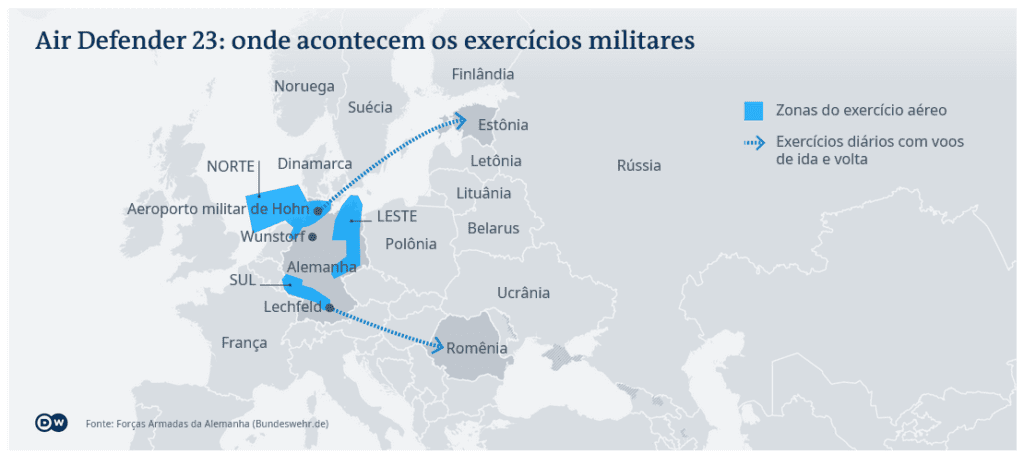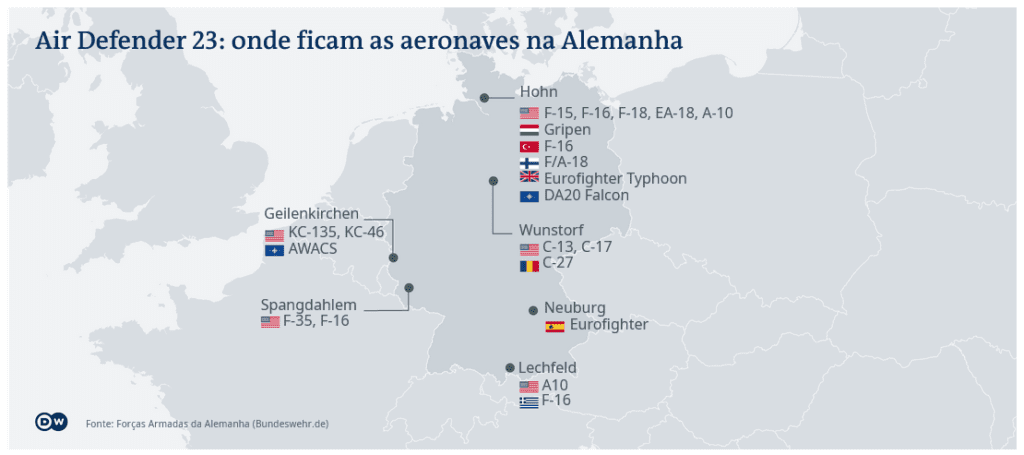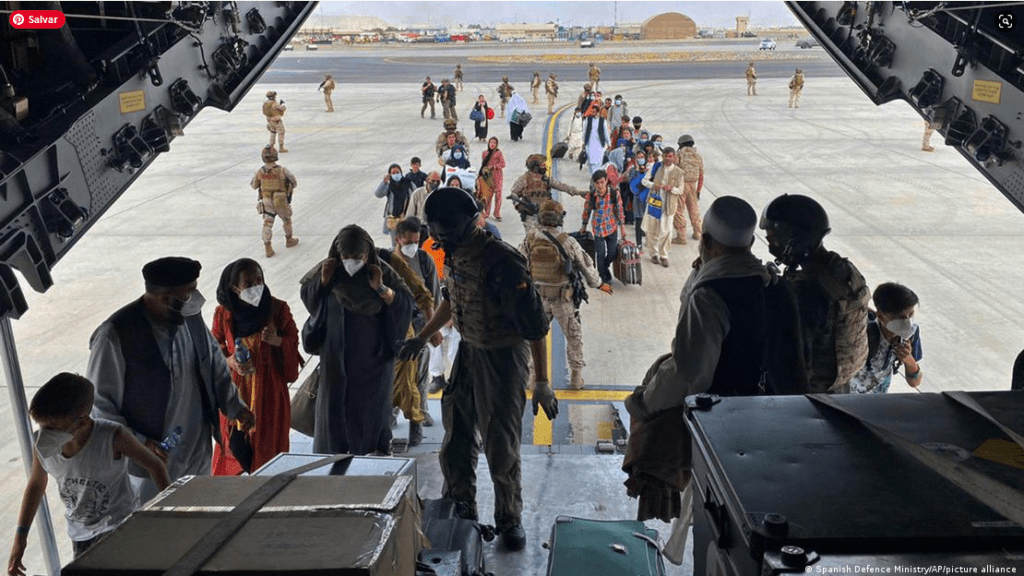Coordinated by Germany, the military maneuver will take place in European airspace. Air Defender 23 is seen as a signal to Moscow.
(DW) After four years of preparations, the North Atlantic Treaty Organization (NATO) will begin on Monday (June 12) the largest air exercise in the history of the military alliance: 250 aircraft – 100 of them coming from the United States – 10,000 soldiers and 25 countries are participating in the action, which will last until the 23rd and has Germany as its logistics center.
The Air Defender 23 action simulates a response to an attack on a member country of the alliance. Because of the training, there will be temporary blockades for civil aviation in three zones of German airspace: on the northern coast and in the eastern and southwestern parts of the country. This is likely to be one of the biggest challenges of the exercise, as these areas are part of the most heavily used civil aviation routes in the world, and their impact on the sector is still uncertain.
“We are showing that NATO territory is our red line, that we are prepared to defend every inch of this territory,” German Air Force inspector and highest ranking military pilot, Lieutenant General Ingo Gerhartz, told a press event in Berlin on Wednesday (June 7). Gerhartz, however, stressed that the action is intended to demonstrate a “defensive” posture toward Russia.


Commercial flights should be maintained despite possible delays
The lieutenant colonel said he expected that commercial flights would not be canceled, but did not rule out delays in landings and takeoffs.
On the business side, the same expectation was reinforced by the European airline association “Airlines for Europe”. In addition to not expecting cancellations, the entity also minimized the impact of any delays, but did not rule out major inconveniences for passengers.
Air traffic specialist Clemens Bollinger points out that, unlike what happens in other European countries, civilian and military air traffic controllers have been working together in Germany for 30 years, precisely because traffic in German airspace is so intense.
According to him, while in France it is common for military personnel to interdict entire areas for civil aviation, this is not the case in Germany. But he stresses that the experience and expertise of the technicians alone is not enough to guarantee punctuality – even more so at a time when air traffic in European space is returning to levels similar to those before the pandemic. “There are many factors that can trigger delays, such as thunderstorms, other weather events, or [airspace] congestion,” he says.
Exercise with routine air traffic maintenance is signal to Russia
By choosing to hold the military exercise parallel to regular civilian air traffic, NATO sends a political signal to Russia, says Toben Arnold of the German Institute for International and Security Affairs (SWP). “Obviously it is a clear signal in the sense of demonstrating, even with an over frequented airspace, the readiness and willingness to defend the alliance’s territory.”
Gerhartz of the German Air Force explains that the exercises include simulations also on the ground, such as evacuation from airports – a scenario, it seems, included after the scenes of chaos at Kabul airport with the takeover of Afghanistan by the Taliban in 2021, after the United States and allied countries end their operations in the country.
Other scenarios simulate ground troop support, air battles, and medium-range rocket neutralization – for this last mission, the U.S. military will send the F-35 stealth bomber, NATO’s most modern fighter. Defense against submarines and ships will also be trained in the North Sea, according to Arnold.

Photo: Spanish Defense Ministry/AP/picture alliance
NATO air exercise takes place during Ukrainian counteroffensive
Although many associate the exercise with Russia’s invasion of Ukraine, Gerhartz of the German Air Force made no mention of the Russians during the presentation of Air Defender 23 to the press in Berlin. The U.S. ambassador to Germany, Amy Gutmann, however, acted differently by quoting Russian President Vladimir Putin nominally: “Preparing and preventing yourself has never been more important than today.”
The NATO exercise may have not so unwelcome side effects: that of challenging a Russian military intelligence divided between studying training and dealing with an increasingly intense Ukrainian counteroffensive in the south and east of the country.
